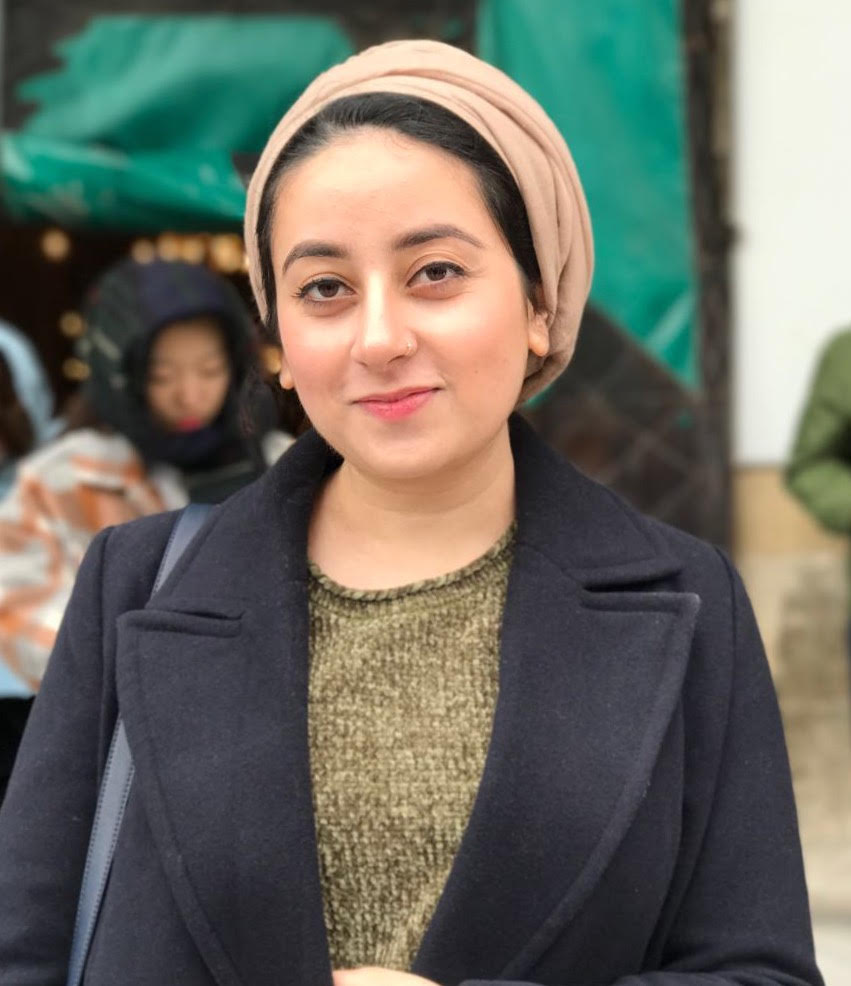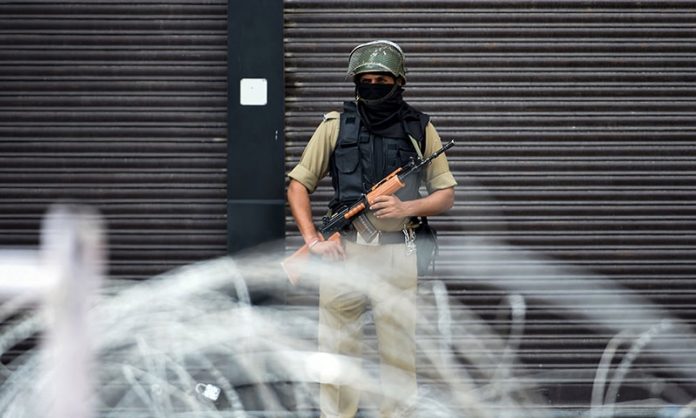With the incessant lockdown in Kashmir crossing 200 days, Kashmiris are being exposed to the worst kind of human rights violations. Hindu extremists, relishing the protection of the authorities, regularly confront those protesting against the Citizenship Amendment Act (CAA), resulting in deadly clashes. While the Hindu radical mindset being nurtured under the Modi government is endangering the lives of Muslims not only in Kashmir but all over India, the recent clashes in Delhi are the harbinger of things to come. Even when the Pakistani leadership has meticulously highlighted the Kashmir dispute internationally, the condition of Muslims not only in Kashmir but all over India continues to deteriorate.
Recent developments reflect a clear path adopted by Pakistan: prioritizing Kashmir at all forums. The UNSC closed-door meeting on Kashmir, the Trump-Khan meeting at the World Economic Forum, Prime Minister Imran Khan’s visit to Turkey and Malaysia, or the United Nations Secretary-General’s recent visit to Pakistan – have each helped bring the Kashmir issue to the forefront. Whilst these developments have effectively internationalized the dispute, they have failed to bring an end to the miseries of Kashmiris. In the backdrop of such circumstances, for Pakistan to build international diplomatic pressure and then transform it into economic sanctions against India is imperative yet challenging. However, there is a dire need on Pakistan’s part to explore options for new coalitions to pressurize India over its Kashmir policy – one such option being an ‘Iran-Turkey-Malaysia-Pakistan’ alliance.
During his recent visit to India, US President Donald Trump once again reiterated his offer to mediate on Kashmir saying, “If anything I can do to mediate, I will do.” Trump’s offer to mediate however depends on both countries accepting the offer and while Pakistan welcomes such mediation, India has a long history of disregarding similar offers of mediation on Kashmir, calling it a ‘bilateral issue’. As far as underlining the significance of UNSC resolutions on Kashmir is concerned, during his visit to Pakistan, UN Secretary-General Antonio Guterres emphasized a resolution of the Kashmir dispute by honouring UNSC resolutions and offered his role as a mediator. He called upon India to guarantee that the people of the occupied region enjoy the same fundamental rights and freedom of movement being enjoyed by the people of Azad Kashmir. While such developments and statements including those of Guterres and Trump are significant for Pakistan in building diplomatic pressure, such pressure would remain inadequate unless it translates into economic sanctions, which would push India to rethink its policy of denial that is depriving Kashmiris of their basic human rights.
The internalization of the Kashmir dispute is certainly the most important step and a major diplomatic success – a step that was not taken as efficiently by the previous governments in Pakistan. However, it is not an end in itself but rather an effective means by which this conflict is to be resolved. Internationalization of the dispute can only help in carving a path for Pakistan to implement its policy on Kashmir and while it should be emphasised well enough, there should also be an equal focus on shaping Pakistan’s actual policy on Kashmir – which still lacks direction, clarity, and solidity. Hence, as much attention is required on part of Pakistan to work towards crafting an effective Kashmir policy.
As for Pakistan’s policy on Kashmir, there is a dire need for Pakistan to reframe its messaging over the Kashmir issue, by moving beyond mere rhetoric and instead emphasising on the legal aspect and terminology. With regards to the abrogation of Article 35A and 370, there should be a greater emphasis on the fact that this move by India constitutes as a war crime as it violates Article 49 of the Fourth Geneva Convention according to which forcible transfers of the civilian population from and within the occupied territory are prohibited. Moreover, with regards to the reports on the situation of human rights in Kashmir prepared by the office of UN High Commissioner for Human Rights (OHCHR), Pakistan should have moved the UN Human Rights Council to independently investigate the claims of human rights violations in Kashmir through a commission of inquiry instead of merely welcoming the report. Such response would have sent a strong signal displaying Pakistan’s resolve towards the Kashmir issue.
While the position of the permanent five members of the UNSC is of utmost importance with regards to Kashmir, platforms such as the OIC could also prove significant in building a case for Kashmir. However, since geopolitics play a significant role in determining the position any country adopts on an issue, turning diplomatic pressure into economic sanctions through UNSC or OIC would prove to be a challenge for Pakistan; nevertheless, it will have to persistently propagate the Kashmir cause under the ambit of legal terminology, in order to reinforce its message.
Only when Pakistan can assemble and persuade an alliance to impose effective economic sanctions on India – for the atrocities committed against Kashmiris – would India be pushed to reconsider its policy in Kashmir. Since economic sanctions are most effective when several countries work mutually, Pakistan will need to persuade powerful economic actors to join such an effort. The ideal situation would be for such sanctions to be imposed through a resolution passed by the UNSC. This, however, in the near future, seems unlikely given India’s relations with the four of five permanent members – with exception of China. Pakistan, then, must make utmost efforts to convince a group of countries – that have already endorsed Pakistan’s stance on Kashmir – to collectively impose economic sanctions on India.
At a time when Saudi Arabia and UAE chose to overlook Pakistan’s stance on Kashmir by reinforcing their economic and diplomatic ties with India, an ‘Iran-Malaysia-Turkey-Pakistan alliance’ could prove to be a constructive alternative to the OIC in solidifying Pakistan’s position on Kashmir. For that Pakistan must work towards materializing the Turkey, Malaysia and Pakistan partnership that was under discussion on the sidelines of the 74th United Nations General Assembly; the three countries had expressed their intent of collectively working to dismantle the misconceptions associated with the perception of Muslims worldwide by introducing measures to combat Islamophobia. While such cooperation could be substantial in highlighting the predicament of Kashmiris and Muslims in India, inclusion of Iran in such a coalition could prove to build substantial diplomatic pressure on India. The quad-alliance of this sort would also be significant in the backdrop of the recent statements from Iranian leadership over the Delhi clashes, whereby despite Iran and India sharing friendly ties and collaborating on the development of Chabahar port, Iran’s Supreme Leader Ayatollah Ali Khamenei threatened India of isolation from the Islamic world over the wave of organised violence against Indian Muslims. For India, Chabahar port holds immense strategic importance and statements such as those coming from Iran could prove to be detrimental for India’s long term strategic and economic goals. This, for Pakistan, means that Iran’s support of Pakistan’s stance on Kashmir, while still at diplomatic stage, has the potential of being transformed into economic support – and Pakistan must fully utilize such an opportunity.
However, for such a coalition to exist, the challenge for Pakistan would be to not succumb to international pressure which hinders Pakistan from participating in important summits like the Kuala Lumpur Summit. Only when Pakistan’s proactive diplomacy is coupled with strong political and economic alliances with these countries, can a path be paved for the possibility of international intervention against India for its repressive policy in Kashmir.
The views and opinions expressed in this article are those of the author.

The author is a Research Associate at the Strategic Studies Institute Islamabad (SSII). She holds a BA in International Relations and Economics with a focus in International Ethics from Mount Holyoke College. Her research interests include religion and politics in Asia, ethics of war and peace, and the Kashmir dispute.


